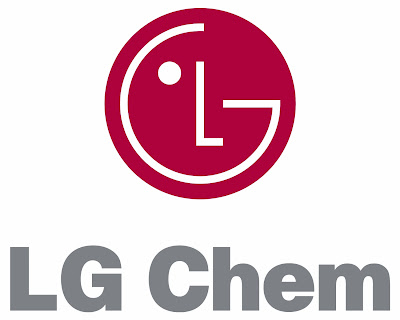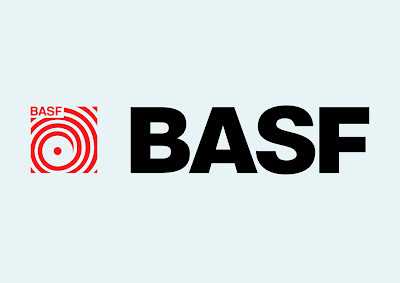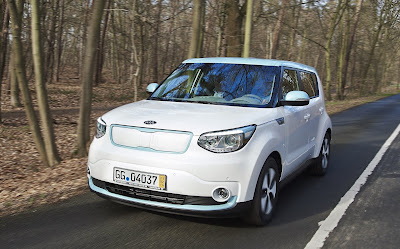2014 V8 Supercars - Adelaide - Nissan Time Attack - Rick Kelly in the Nissan LEAF Nismo RC vs Todd Kelly in the Nissan Altima V8 Supercar vs Neil Crompton in the Nissan GT-R Road car.
LG Chem CEO mulls electric car battery plant in China
Chief executive of LG Chem said that the South Korean company was considering building an electric vehicle battery plant in China, expecting Beijing's efforts to tackle air pollution to drive demand.
Park Jin-soo also said LG Chem, which currently supplies electric-car batteries for General Motors Co's Volt and Renault cars, will double the number of its customers to 20 in the near future.
"We are considering it (the China car battery plant), which should be in line with market demand," Park said at a press briefing on Friday embargoed until Sunday morning.
LG Chem currently has a factory in Nanjing, China producing small batteries for smartphones and other mobile devices, and Park said the firm is looking at not only Nanjing and other sites for the potential car battery factory.
China's Finance Ministry said last month it will extend a programme of subsidies for buyers of electric-powered vehicles after the current subsidy regime, part of efforts to combat pollution in cities, expires in 2015.
The subsidies were designed to help China meet a goal of putting half a million new-energy vehicles, defined as all-electric battery vehicles and heavily electrified "near all-electric" plug-in hybrids, on the road by 2015 and 5 million by 2020.
LG Chem's crosstown rival, Samsung SDI, said in January that it will form a joint venture in China to spend $600 million on building a car battery plant in Xi'an, Shaanxi province, by next year and on other electric car battery-related businesses over the next five years.
Nissan LEAF Sales Rise 1,000% In January 2014
UK Nissan LEAF sales for January 2014 clocked-in at 1000% higher than the same period in 2013.
The all-electric hatchback accounted for nearly 75% of fully electric vehicle sales for the month. The Nissan LEAF has now reached 3,000 sales in the UK and 100,000 worldwide.
Since its launch in December 2010 Nissan has seen the pace of sales increase consistently and 2013 was a record year. The LEAF is now available to customers in 35 countries on four continents. In Norway, the Nissan LEAF topped sales charts, out-selling conventional gasoline powered vehicles in October 2013.
After leading the era of electrification in passenger vehicles with the LEAF, Nissan will in 2014 bring an all-electric light commercial vehicle to market. The e-NV200 will go on sale in Europe and Japan.
Drayson Racing B12 winter tests continue at Silverstone
Drayson Racing ran its World Electric Land Speed Record-breaking Drayson B12/69 EV for the first time this year at Silverstone, as its winter test programme continues to develop the world’s most advanced electric-powered racing car.
The aim of the latest test was to try a variety of new motor cooling options and traction control settings – and the extremely wet track conditions were ideal for gathering valuable wheelspin data from the B12’s one thousand data channels.
This time running the B12 with reduced aero and power, test driver Jonny Cocker recorded the same lap time around the Silverstone National Circuit as he’d achieved at a test before Christmas, when the prototype ran in full downforce specification and with full power.
Standing water prevented the B12 reaching its top speed of 220mph, but the pioneering Drayson Racing Technologies technical team were delighted with the results of the test – as the duty cycle of the powerful electric motors and cooling challenges faced doing a land speed record attempt are completely different to running circuit laps.
Tesla Model S P85 v Tesla Model S P85 – Quietest Drag Race Ever? [VIDEO]
Fully Charged – 2nd Generation Nissan Leaf Launch in Norway [VIDEO]
BASF Commits R&D to EV battery market
BASF, the largest chemical company in the world, is betting customers will flock to electric cars, using its chemical products to create a battery that will enable vehicles to run longer. BASF, with an annual 1.7 billion-euro ($2.3 billion) research budget, has made battery materials one of 10 areas it’s targeting for growth.
“We are committed,” Adrian Steinmetz, head of global business management at BASF’s battery materials unit, said in an interview at the company’s headquarters in Ludwigshafen. “Having this long-term strategy is typical of BASF. It’s the reason why this company has existed for 149 years.”
To become a major supplier for electric cars, BASF needs to challenge the dominance of Asian market leaders Mitsubishi Chemical Holdings Corp., Sumitomo Chemical Co. and LG Chem. Those companies have an advantage in lithium-ion technology, crucial in car batteries and helped by their proximity to the region’s booming electronics, computer and phones industries.
Advanced battery pack for Kia Soul EV
Engineers from Kia have developed the outstanding power pack featuring 192 lithium-ion polimer battery cells in eight modules, delivering a total power output of 27 kWh. The pack incorporates state-of-the-art thermal control technology to maintain individual cells at optimum temperature and structural design to enhance crash worthiness.
Nickel-rich NCM (nickel-cobalt-manganese) cathode material is used in the mass production of the battery cells for Soul EV. Energy density, which is dependent on cathode capabilities, is a core performance factor deciding EV driving range. By exploiting the class-leading energy density of its battery, the Soul EV offers a driving range of 'around' 200 km on a single charge.
Toyota to Increase Yaris Hybrid production to 200,000 for 2014
Toyota announced this week that it will start operating a third production shift at its European Yaris factory from June 2014 in order to meet high demand for its two products, the Toyota Yaris and the Toyota Yaris Hybrid.
The Yaris is unique among small cars in having the option of proven Toyota hybrid technology, bringing the easy driving, fuel efficient hybrid drive to a wider audience than ever before.
The three-shift operation will require an increase in manpower by 500 production employees, which will bring total employment at Toyota Motor Manufacturing France (TMMF) in Valenciennes to more than 4,000.
Until the third shift is in place, some Saturday production is planned to meet the demand.
“Sales forecasts have led us to increase production plans by around 15 per cent for 2014, for a total annual production volume of around 220,000 units,” confirmed Koreatsu Aoki, President of TMMF.
LaFerrari hybrid voted Best Sports Car in Madrid
Ferrari has taken the prize in the Best Sports Car category during the Best Cars 2014 awards celebrated in Madrid. The award ceremony at the Santiago Bernabeu Stadium was organized by the prestigious Spanish motoring magazines, Autopista, Automóvil, Coche Actual and Autovía.
Ferrari’s "LaFerrari", the limited-edition hybrid special of which only 499 units will be produced, was voted Best Sports Car, winning its first award in Spain. Since its launch, "LaFerrari" has earned worldwide critical acclaim from clients and media alike, in part because it is the most powerful Ferrari ever produced and also because it´s the first hybrid vehicle from the brand.
.jpg)

.jpg)




